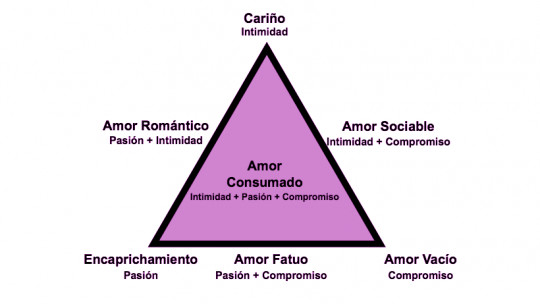
What does science say about love and infatuation? Today we review seven scientific investigations in this regard, which reveal the great mystery of the relationship between our brain and our behavior with romance.
The studies that lovers should know: falling in love and love, under the magnifying glass of science
Psychologists, sociologists and doctors have tried to understand human behavior regarding falling in love, love, heartbreak, or attraction. And that’s because love is one of the most extraordinary sensations that a human being can enjoy, and the intense emotions and passion of falling in love usually affect the mind and body of all of us.
In the last decades, Research in this field has been many and very varied Although there has not always been a consensus in the discoveries, today we are going to review some curious conclusions about love and falling in love.
1. Love is like a drug
The chemistry of love is capable of making us feel high, make us suffer a low or make us feel the monkey for someone That love is like a drug is totally true, since it uses the same neural pathways as it. As a study by the Albert Einstein College of Medicine points out, when love is broken, just as when a person is addicted to drugs, the consequences of the addiction are so strong that they can lead to serious depressive and obsessive behaviors.
Like drugs, love releases dopamine, serotonin or norepinephrine, which is why when we fall in love we feel excited, full of energy and our perception of life is magnificent.
2. Christmas causes divorces
Research seems to indicate that After Christmas, breakups increase The change in schedules and more intense coexistence causes differences that have been hidden to emerge. Since Christmas is the most stressful time for couples, Divorces and separations are increasing an average of 5% in the month of January compared to the rest of the year according to data from the General Council of the Judiciary of Spain.
The reasons for this increase in breakups include added stress. Furthermore, according to Victoria Milan, the dating portal for married people or couples looking for an adventure, more than 45% say they have felt the desire to get divorced during January, while only 22% say the opposite is true. This study was carried out with more than 9,000 women and men dating website users.
3. The small details are what count
We live in a consumerist society and love and social relationships have also become commercialized. That is why it is important to remember that they are the little things that make the difference in the end A recent study related to the psychology of love, in which 4,000 residents of the United Kingdom participated, concluded that acts of kindness are the ones that are most valued. Bringing coffee to your partner when they get up, being receptive when they arrive tired from work or reminding them how great they look in the morning will be more valued than spending a lot of money on a gift.
4. Watching love movies: the best couples therapy
A longitudinal study states that Divorce rate drops dramatically when couples watch love movies and talk about them later. The result of the study carried out by Ronald Rogge suggests “that couples know perfectly well what they do right and wrong in their relationship, so you don’t have to teach them much about it. The important thing is that they reflect on their behavior, and love movies can help them do so. In addition, actors often function as models to imitate.”
5. Social networks the first cause of divorce
According to a survey by the Academy of Matrimonial Lawyers of the United States carried out in 2011, it appears that four out of five lawyers have perceived an increase in divorce cases due to the use of social networks. These generate different problems in the couple, mistrust or jealousy, and as a result 1 in 5 marriages break up due to problems caused by the use of Facebook. Furthermore, two-thirds of those surveyed say that Facebook is the leading cause of divorce.
On the other hand, according to a study by Garcia Rivera, “it can be concluded that it causes more discomfort for women when their partner uses Facebook. Sharing photos, activities and the “likes” they give to other publications are the activities that cause them the most problems, but despite the fact that 70% of those surveyed answered yes, they have problems due to their partner’s use of Facebook, only 30% responded to having had a sentimental break because of that”.
6. Long distance relationships can work
According to new research, and contrary to what most people think, long-distance relationships can work. There are two reasons that keep the flame alive despite the kilometers that separate the two lovers. Couples separated by distance are counted more intimate information and They have more idealized the couple As a result, the two tend to have similar levels of satisfaction and stability. Will it be true?
7. Couple’s arguments make you fat
A study of Institute of Behavioral Medicine from Ohio University states that people prone to stress, depression or mood problems are at greater risk of gaining weight if they argue with their partner frequently, since it affects the way the body processes fat. Fights between members of the couple cause an increase in the amount of insulin in the blood, which stimulates food intake and the accumulation of abdominal fat.
Additionally, frequent fights can make a person feel depressed and lead to overeating. Being discouraged causes you to abandon healthy lifestyle habits, such as exercising. On the other hand, people with stress and anxiety problems, can increase triglycerides responsible for important cardiovascular diseases.
More science of love and falling in love
In this chapter of the Spanish scientific dissemination program Networks goes deeper about itThe psychological and neuroscientific aspects linked to the process of falling in love and love We highly recommend that you see it.








